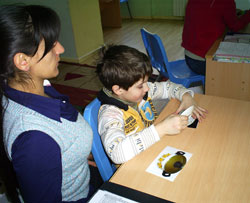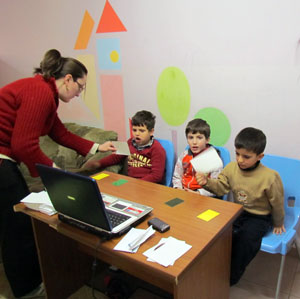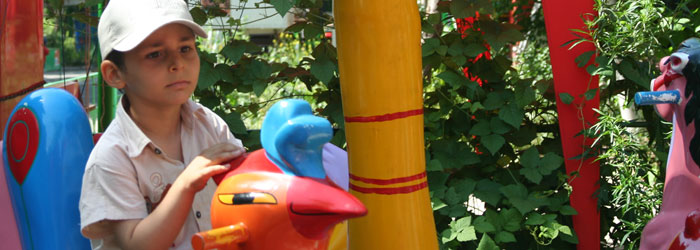 Applied Behavioral Analysis (ABA) is a systematic treatment for autism based on scientific research. It is used to teach a variety of skills, including skills to help people with academic tasks, pre-academic tasks, social and communicative behavior. ABA therapy has no upper or lower age limits. Due to the neuroplasticity of children’s nervous systems, research solidly supports the critical importance of beginning ABA intervention as soon as possible. By definition, ABA is individualized to reflect each child’s strengths and needs.
Applied Behavioral Analysis (ABA) is a systematic treatment for autism based on scientific research. It is used to teach a variety of skills, including skills to help people with academic tasks, pre-academic tasks, social and communicative behavior. ABA therapy has no upper or lower age limits. Due to the neuroplasticity of children’s nervous systems, research solidly supports the critical importance of beginning ABA intervention as soon as possible. By definition, ABA is individualized to reflect each child’s strengths and needs.
It is our task to assist individuals in the development of comprehensive support systems to maintain lasting improvement. All our treatment plans are based in evidence-based practices and are implemented by well-qualified staff.
A successful ABA program incorporates many specific methods, often (but not necessarily) including discrete trial teaching strategies, precision teaching, visual systems, functional communication training, and incidental teaching. ABA strategies are designed to maximize the generalization of skills to a variety of situations a person may encounter.
ABA programs begin with a functional assessment to determine the child’s skills and deficits, as well as reinforce surveys designed to best understand how each child is motivated. The individualized programs are then developed based on the child’s needs.
In this program children will learn social interaction, communication, play skills, life skills, daily routines and group instructions.
 Research has demonstrated conclusively that in order to be effective, treatment of children with autism must be intensive. To be considered “intensive,” therapeutic intervention with the child typically runs to 30 or more hours a week. ICDC is the only program currently operating in Armenia that fulfills these requirements.
Research has demonstrated conclusively that in order to be effective, treatment of children with autism must be intensive. To be considered “intensive,” therapeutic intervention with the child typically runs to 30 or more hours a week. ICDC is the only program currently operating in Armenia that fulfills these requirements.
ABA therapists provide individual behavior therapy at the center, in the child’s home or at the child’s school.
Our ABA therapists have received comprehensive training in behavioral theory, reinforcement techniques, the application of discrete trial training, the nuances of prompting and fading, behavior management, generalization, maintenance of acquired skills and interactive play with peer groups and social development.
Our professional staff are trained and supervised on an ongoing basis by visiting American specialists under the coordination and direction of our founding director, Ira Heilveil, Ph.D., BCBA-D.
 INTERNATIONAL CHILD DEVELOPMENT CENTER “They may forget what you said but they will never forget how you made them feel” Carol Buchner
INTERNATIONAL CHILD DEVELOPMENT CENTER “They may forget what you said but they will never forget how you made them feel” Carol Buchner
